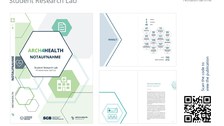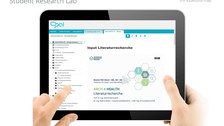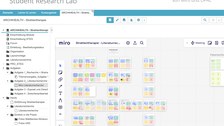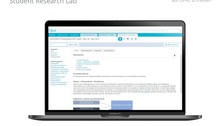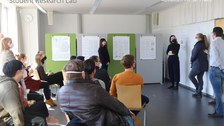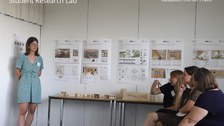ARCH4HEALTH Student Research Lab: Prof. Gesine Marquardt (#GM1)
Brief Description
In the ARCH4HEALTH Student Research Lab, students research a wide range of issues relating to healthcare building construction. With the help of hybrid teaching methods such as videos on OPAL or the use of discussion platforms such as Miro, students are encouraged to conduct independent or joint exploratory research on a certain aspect of healthcare.
Keywords
- Architecture
- Healthcare facilities
- Research
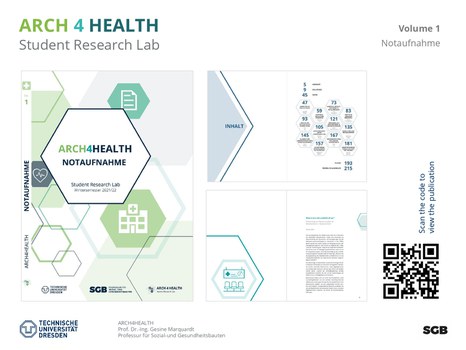
© Gesine Marquardt
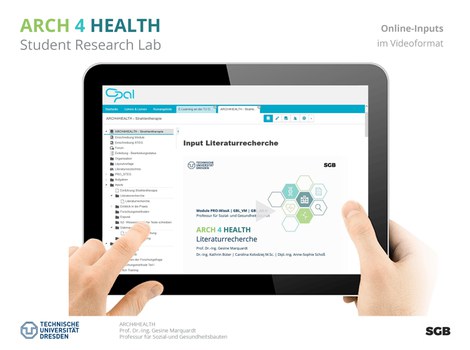
© Gesine Marquardt
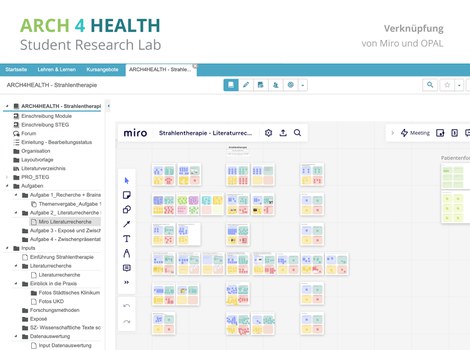
© Gesine Marquardt

© Gesine Marquardt

© Gesine Marquardt

© Gesine Marquardt
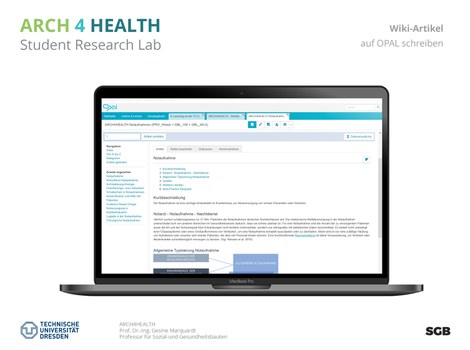
© Gesine Marquardt
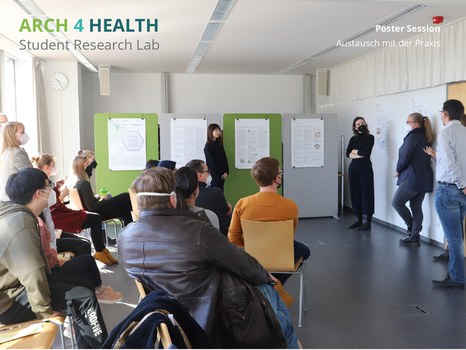
© Gesine Marquardt
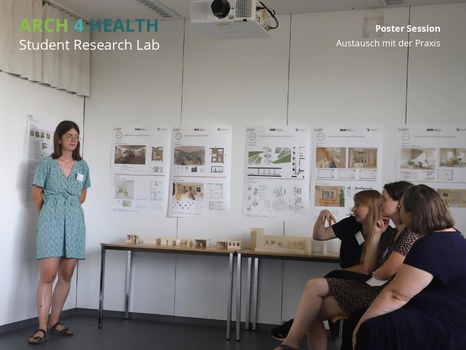
© Gesine Marquardt
What makes this gem special?
Many studies have confirmed that built environments influence human behavior. These research findings are particularly crucial for the healthcare sector, such as the construction of hospitals and residential care facilities, in order to enable the design of user-oriented and sustainable buildings. Healthcare construction is a very fast-moving field, requiring constant adaptation to changing conditions in response to medical and technical advances, societal change, and, currently, the Covid-19 pandemic.
At the Chair of Social and Health Care Buildings and Design, we have been researching and teaching about the influence of architecture on building users for many years. In our ARCH4HEALTH Student Research Lab, we follow the inquiry-based learning approach. Students conduct independent research projects on healthcare construction and choose their research question themselves. We use a hybrid teaching concept to provide all students with the space they need for their own development. Students will find content for independent study online, which they are encouraged to explore as much as possible. Invaluable online tools such as Miro, Nextcloud, Opal and Opal-Wiki support students in this by providing space for them to interact with lecturers and fellow students. We also meet on site for discussions, consolidation and application of knowledge. In this way, students become familiar with scientific working methods and generate new ideas that can provide impetus for real-world applications and promote innovation.
Students’ research findings are published on Qucosa and on the Chair’s website, making them available to broad audience of experts. The digital publication series on evidence-based healthcare construction (Evidenzbasierter Gesundheitsbau) is aimed at architects and professionals working in the healthcare sector.
Related links
Contact
Organizational unit
Faculty of Architecture, Chair of Social and Health Care Buildings and Design
Course size
Up to 30 students
Voting ID
#GM1
